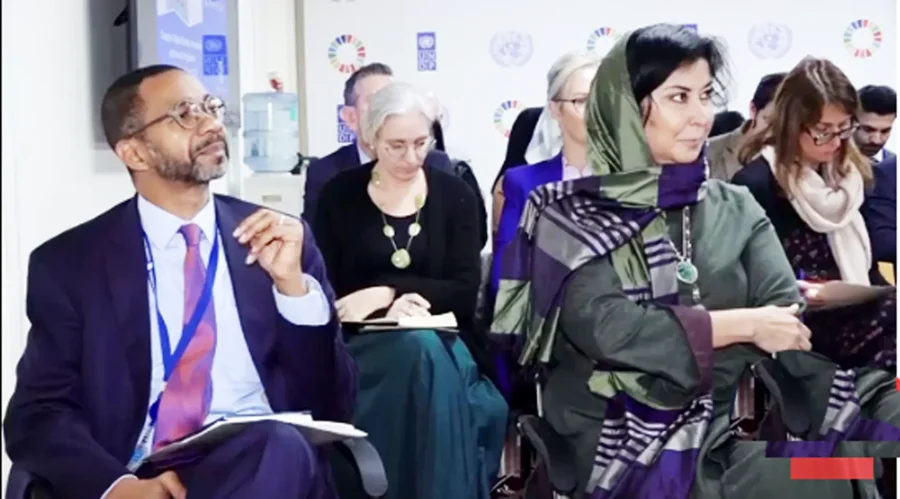The United Nations Development Programme (UNDP) said that women and girls are bearing the brunt of the economic and humanitarian crises where female-headed households work more for the same household per capita income, consume a lower quantity of food, and women constantly lose their share of employment compared to men, while girls’ education attendance is at alarmingly low levels.
Speaking at a press event in Kabul, UNDP Resident Representative for Afghanistan, Stephen Rodriques, said that the economic loss caused by the restrictions on the female workforce was estimated to have reached US$ 1 billion at the end of 2022.
“This is largely due to a number of facts including restricted banking services. Suspension of official development weakened and isolated …economic institutions, and a lack of foreign direct investment,” he said.
Rodriques said that 7 out of 10 Afghans are unable to fulfill their basic needs for food, health care and employment.
“While the economy appears to be stabilizing, it is simply not growing fast enough to meet the needs of the 35 million in growing population,” he said.
The chargé d’affaires of the Japan embassy, Takuya Tanimoto, said Japan seeks to help the people of Afghanistan to become self-reliant,
“to support Afghanistan’s people in maintaining and improving their lives and becoming self-reliant through their own efforts,” he said.
The UNDP released its report of 2 years in review “Changes in Afghan Economy, Households and Cross-Cutting Sectors (August 2021 to August 2023)” on Thursday.
The Chargé d’Affaires of the Afghanistan Permanent Mission to the UN, Naseer Ahmad Faiq, has raised concerns over the human rights situation in Afghanistan, especially the rights of women and girls.
Speaking at the General Discussion on the Advancement of Rights of Women and Girls before the Third Committee of the General Assembly-78th session, Faiq asked the international community to stand in solidarity with Afghan women and girls.
“A united voice could exert pressure on the Taliban to reverse their policies, heed the demands of the Afghan people and international partners, and honor their commitments. We should not ignore this grave injustice. We must unite to end the suffering of Afghan women and girls under the Taliban’s rule and make ‘leaving no one behind’ a reality for them,” Faiq said.
At the General Discussion on the Advancement of Rights of Women and Girls, a representative of Indonesia said restrictions on women will have a negative impact on the future of Afghan women and girls.
“Recent restrictions placed by the current authorities impact negatively on the future of Afghan women and girls. Accordingly, the responsibility of the international community is clear — to prioritize the rights of women and girls in Afghanistan while safeguarding humanitarian assistance,” said representative of Indonesia, Hari Prabowo.
“Iceland aligns itself to the joint statement read by the United Arab Emirates on the deplorable situation of women in Afghanistan. Member States representatives today may disagree on many agenda items, but no one can deny that setbacks of the Afghan women rights under the Taliban control requires our urgent attention,” said Jörundur Valtýsson, the new Permanent Representative of Iceland to the United Nations.
Although the Islamic Emirate has not yet commented on this issue, previously it said that women’s and girls’ rights are ensured in accordance with the Islamic principles.
“In Afghanistan, those rights which are given to women and girls by Islamic Sharia, nobody is allowed to violate it, and the Islamic Emirate ensures it and considers it as its obligation,” said Zabihullah Mujahid, Islamic Emirate’s spokesman.
Meanwhile, the head of UNAMA, Roza Otunbayeva, told UN News that she “remains hopeful that the Taliban will reverse its stance on women’s rights.”—Tolonews










